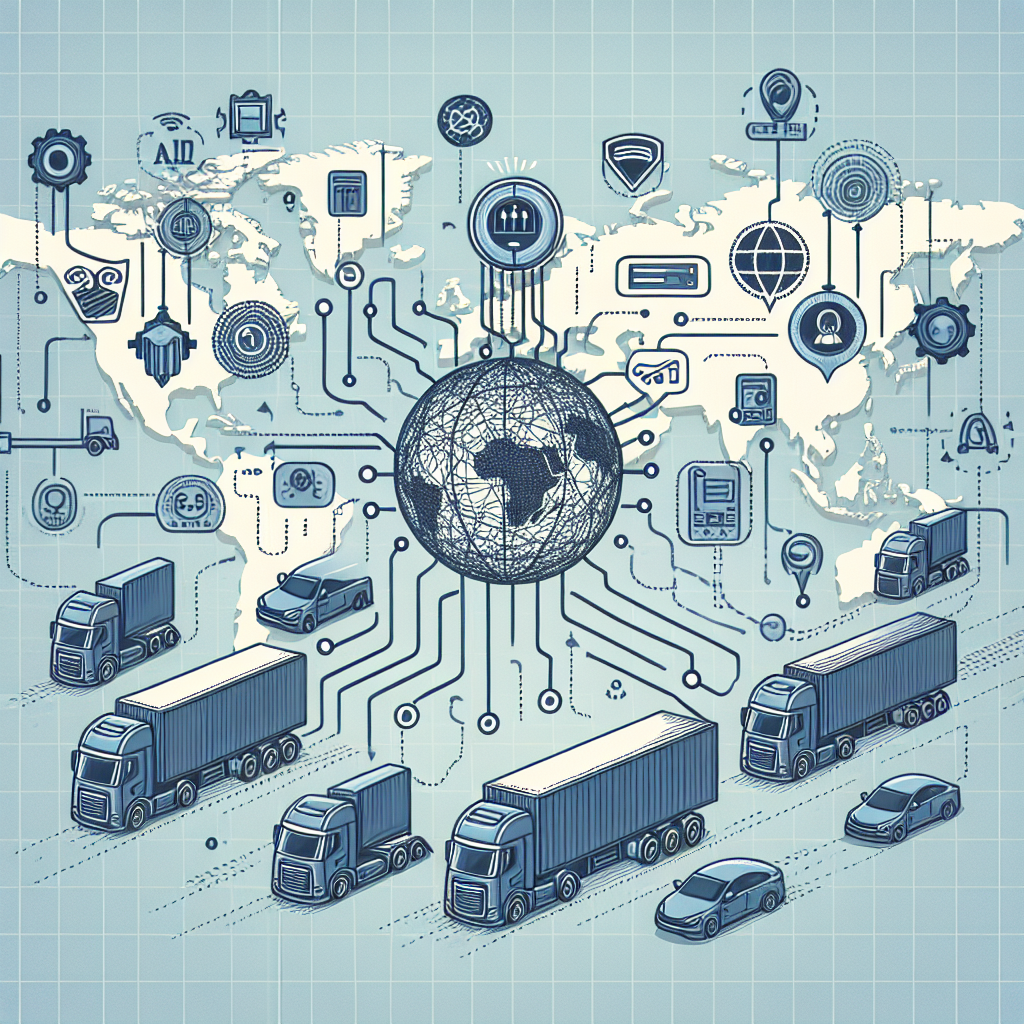Artificial intelligence (AI) is revolutionizing the transportation industry, particularly in the realm of logistics. From optimizing supply chain management to improving route planning, AI deployment in transportation is helping companies streamline operations, reduce costs, and enhance overall efficiency.
One of the key ways in which AI is being deployed in transportation is through the use of predictive analytics. By analyzing historical data and real-time information, AI algorithms can forecast demand, identify potential disruptions, and make recommendations for optimizing logistics operations. This allows companies to better anticipate and respond to fluctuations in demand, reduce the risk of stockouts or overstocking, and improve overall supply chain performance.
For example, AI-powered demand forecasting can help transportation companies accurately predict customer demand for their services and adjust capacity accordingly. This can help companies avoid costly overcapacity or undercapacity issues, improve resource allocation, and enhance customer satisfaction.
AI is also being used to optimize route planning and scheduling in transportation. By considering factors such as traffic patterns, weather conditions, and delivery time windows, AI algorithms can help companies determine the most efficient routes for their vehicles, minimize delivery times, and reduce fuel consumption. This not only helps companies save time and money but also reduces their carbon footprint and environmental impact.
Furthermore, AI is being leveraged to enhance supply chain visibility and transparency. By tracking and analyzing data from various sources, such as sensors, GPS devices, and RFID tags, AI can provide real-time insights into the location and status of goods in transit. This allows companies to proactively address potential disruptions, improve inventory management, and provide customers with accurate and up-to-date information about their shipments.
In addition to optimizing logistics operations, AI is also transforming the customer experience in transportation. For example, chatbots powered by AI technology can provide customers with real-time updates on their shipments, answer questions, and resolve issues quickly and efficiently. This not only improves customer satisfaction but also reduces the burden on customer service teams, enabling them to focus on more complex and high-value tasks.
Overall, the deployment of AI in transportation is helping companies unlock new opportunities for growth, efficiency, and innovation. By harnessing the power of AI technologies, transportation companies can improve their competitiveness, increase their operational agility, and drive sustainable business outcomes.
FAQs:
Q: How can AI help transportation companies reduce costs?
A: AI can help transportation companies reduce costs by optimizing route planning, improving demand forecasting, and enhancing supply chain visibility. By streamlining operations and improving efficiency, companies can lower fuel consumption, reduce inventory holding costs, and minimize the risk of disruptions.
Q: What are some examples of AI applications in transportation?
A: Some examples of AI applications in transportation include predictive analytics for demand forecasting, route optimization and scheduling, supply chain visibility and transparency, and customer service chatbots.
Q: How can transportation companies benefit from deploying AI?
A: Transportation companies can benefit from deploying AI by improving operational efficiency, enhancing customer experience, reducing costs, and driving innovation. By leveraging AI technologies, companies can gain a competitive edge in the market and position themselves for long-term success.
Q: What are the challenges of deploying AI in transportation?
A: Some challenges of deploying AI in transportation include data quality and availability, regulatory compliance, integration with existing systems, and workforce readiness. Overcoming these challenges requires careful planning, investment in technology infrastructure, and training employees to work alongside AI systems.
In conclusion, AI deployment in transportation is transforming the way companies manage their logistics operations, optimize supply chains, and deliver exceptional customer experiences. By harnessing the power of AI technologies, transportation companies can unlock new opportunities for growth, efficiency, and innovation in an increasingly competitive and dynamic industry.

